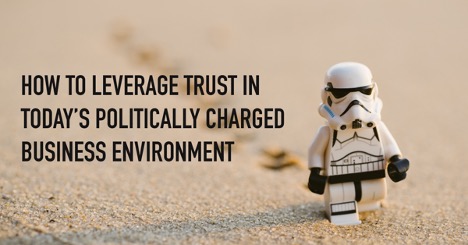Leaders today face challenges beyond profit and loss — they frequently need to wade into the murky depths of political opinion, which too often turns into swimming in corporate quicksand. Whether they want to or not, leaders are finding themselves needing to weigh in on topics that are not traditionally included in boardroom conversations, choose sides, and take a stand.
The workplace has become so focused on social change, environmental causes, and government directives that it’s easy for leaders to become distracted from the business of doing business.
To succeed, leaders today must be skilled and equipped with what are often called soft skills. These critical skills require high emotional intelligence (EQ) and core leadership competencies,
including listening skills, the ability to ask thoughtful and clarifying questions, empathy, and the desire to understand.
Deftly managed, soft skills build tremendous trust between leaders and employees — which goes a long way in creating a highly engaged workforce where everyone thrives.
Trust Is a Foundation
When we create a high-trust and highly engaged culture, we are able to address what is happening in the world around us, in a way that is inclusive and accommodating to all viewpoints. And we can do so while remaining diligently focused on our similarities — our shared humanity and the core mission to serve our clients and take care of each other. I recently read Douglas McGregor’s X and Y theories from the book “The Human Side of Enterprise,” which discusses the factors that influence culture. One of those factors is how leaders view employees and how they typically fall into one of two camps:
· Theory X pessimistically asserts that the average person doesn’t want to work and needs threats to get work done.
· Theory Y believes people naturally want to work and can be motivated with positive incentives.
A leader who aligns with Theory Y will generate trust from workers because their belief that workers want to achieve their business goals projects a great deal of trust in those workers. According to McGregor, what leaders believe and value about their employees will drive how they behave, which brings us back to whether a culture is or is not engaged.
Engaged Cultures are Built on Trust
The relationships people have at work are of major importance. The 2022 Edelman Trust Barometer revealed that 60% of people would choose a place to work based on their beliefs and values.
People want to work with others who are like them and to feel like they are part of something they respect. Workers want to trust their employer, and they want to be engaged. In all my years of leading companies, I’ve never heard anyone say they’d prefer the opposite.
But engaged cultures need engaged employees. It’s a cycle that feeds itself. And creating that perfect situation requires excellent leadership.
Leaders act on their beliefs. Conscious or unconscious, we all bring our biases to what we do, and the undercurrent of beliefs we have comes with us no matter what.
Great leaders understand this dynamic. They have insights into their own biases and know how to check them. No one is perfect, but some manage themselves better than others.
Requirements of an Engaged Culture
A high degree of trust will minimize politically charged world events that can disrupt the organization. With that knowledge, make sure the following factors are included in your trust strategy:
- Developing your leaders. Developing leadership skills fosters trust and rapport.
- Investing in leadership skill sets. Mid-level management, especially the people who deal with employees on a daily basis, need to build skills that help the organization build trust.
- Working on developing empathy. Yes, empathy can be developed. Try asking questions about how things impact a particular person and reflect that you understand.
- Developing soft skills. These are key to building trust.
- Inspiring and incentivizing employees to go above and beyond. A good leader will draw out that desire.
In today’s world, organizations will either lose their way or disengage if they don’t know how to correctly handle politically charged hot-button topics.
These topics don’t need to be ignored entirely, but the discussions around them need to be welcoming to all sides. We live in an environment that makes it hard for many people to speak up honestly, for fear of reprisal.
In an environment filled with trust, different viewpoints can be discussed without malice.
What is your organization doing to foster a culture of trust that can minimize external pressures affecting internal dialog? If you want to chat about this topic or have questions about leadership, ping me. I’d love to continue the discussion.


